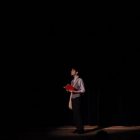Finding Readers

How do we find good critical readers for our work? Whose eyes will see it as ours can’t or won’t? Who makes for a better critic – a sympathetic reader, or a skeptical one? We ask much of these readers – they must devote time and emotion and thought. They must have knowledge of the idiom and tradition from which the work emerged, its formal and thematic allusions, the aesthetic decorum it either accepts or challenges. They must be frank and incisive, neither over-gentle nor cruel. They must be able to differentiate personal idiosyncrasies from general ideas of taste, quibbles from deal-breakers. They must see the work for itself, and not for the person who wrote it – a difficult task when so often we rely on our friends to be our readers. They must encounter our work with a stranger’s eye, and a stranger’s curiosities.
Most poets I know – even those with several books out – rely on a few carefully-chosen readers to groom their manuscripts before publication, to vet their poems for drunken uncles and hidden convictions. Because in many ways, publishing is a campaign – a campaign to win over art school bloggers and New York editors, competition screeners and Sunday browsers of Des Moines book bins, high school English teachers and deep-pocketed Swedish committees. The campaign begins the first time a writer shares his work, and ends only when the very last copy is pulped or wiped from the hard drive, passed forever from all claim on human consciousness.
I believe audience is usually a secondary consideration in a poet’s critical process, however; the most important question is to what extent each of the poems lives up to the poet’s aesthetic ideal. And this is where I find readers most useful. Not every reader is the right reader for my work. My formal poems may succeed on terms that are utterly rejected by a more experimental aesthetic. They may be too coy for the confessionalists, and too “I-centric” for the impersonalists. But the reader who can read my work in the spirit I intended, while at the same time distancing herself from it enough to see its flaws, is an invaluable resource. The best criticisms I have ever received as a mature writer all have this in common: when I heard them, I immediately felt them to be true. What’s more, I realized that I had known they were true all along, and had been fooling myself out of vanity or expedience. It is rare that I am completely surprised by criticisms that ring true to me. These criticisms may be valid. But since they fail to accept certain basic aesthetic tenets under which I operate, I can’t use them.
Yet sometimes, as Rilke says, you must change your life. Could it be that the very best criticism, the most life-changing, is the one for which we are totally unprepared and undefended, the one which wounds us? Recently, a good friend offered to read the manuscript of my first book for me. I was delighted – he is a person I love, and also a writer I greatly admire. We sat down together and read the first section. Half of it, he found extremely persuasive. For the other half, he expressed a polite contempt. I am a veteran of many workshops, and have had all kinds of criticism directed at my work, some of it personal and vindictive, so I don’t tend to take criticism too grievously anymore. But this time, I was crushed. Could I have totally misjudged the aesthetic behind a full half of what I considered the very best poems I’ve written over the last nine years? It didn’t seem true to me – or, if it did, only to that small, darkest part of me that wants to expunge the world of everything I’ve ever written. Yet this was a friend, and a good writer, one whose intentions toward me were solely to help and teach. All week long, I’ve carried it with me to distraction, unresolved.
This is Peter’s thirteenth post as a Guest Blogger.



